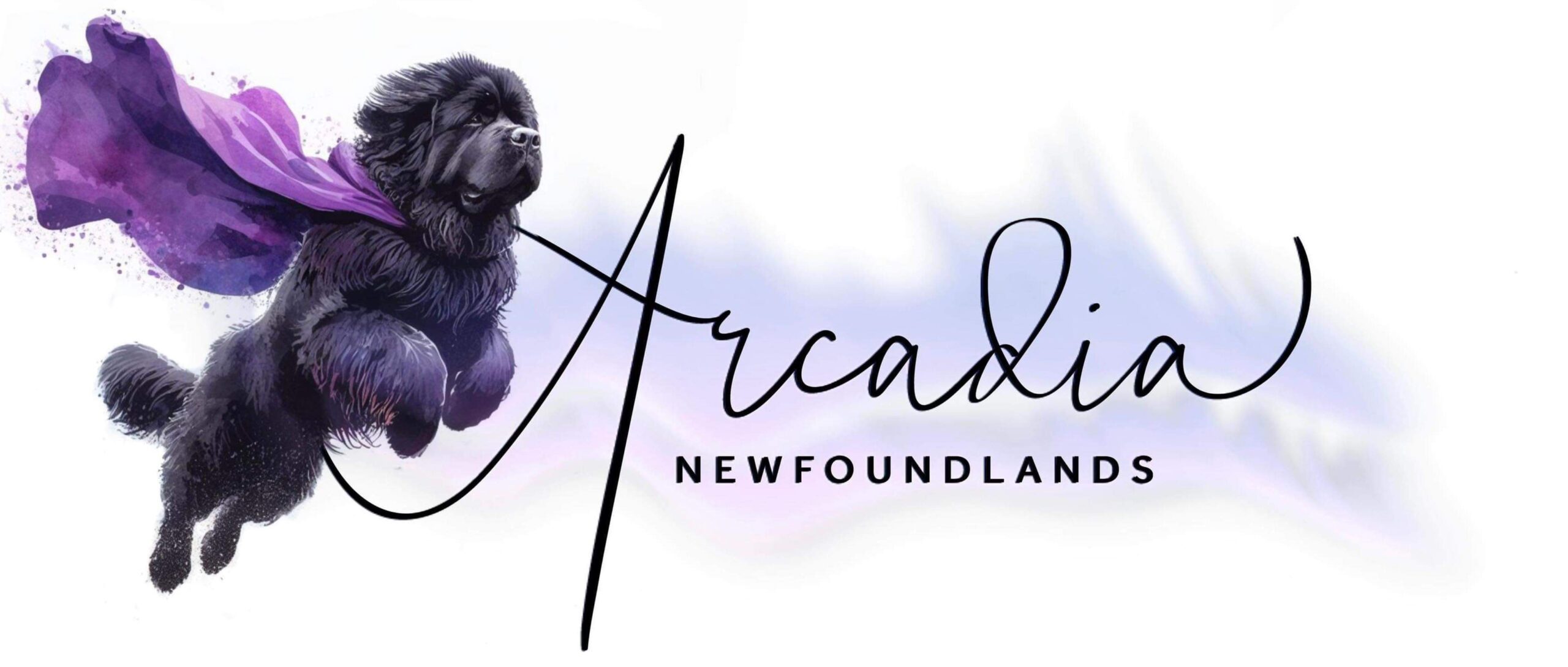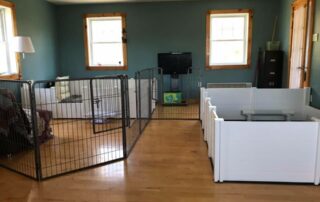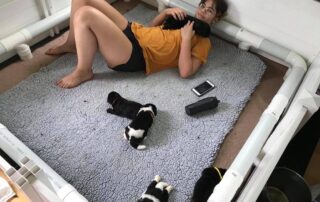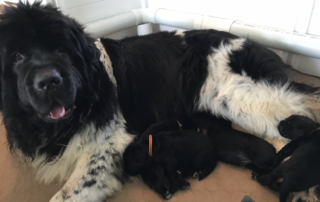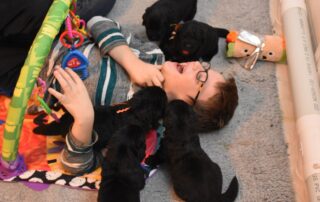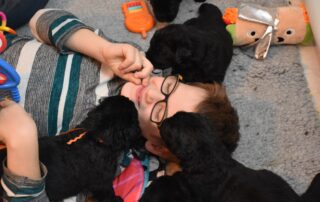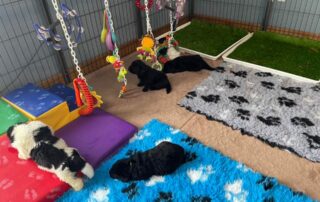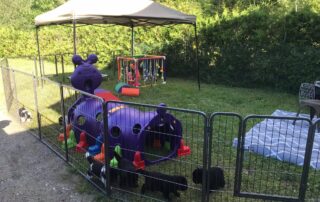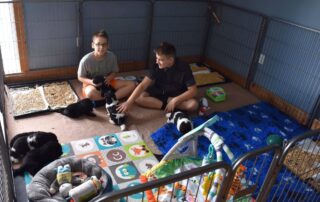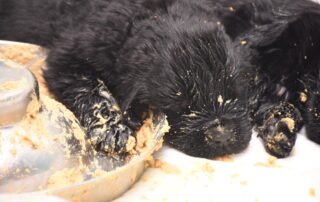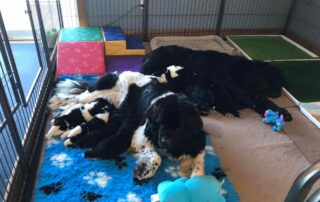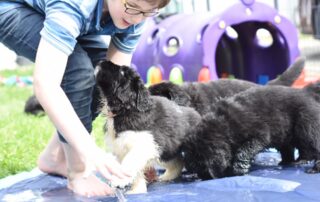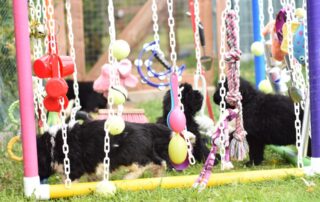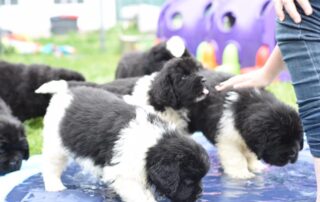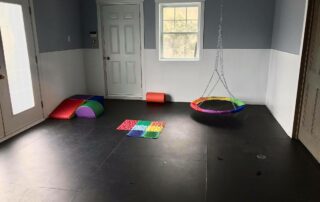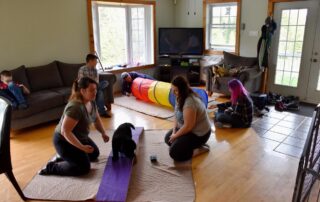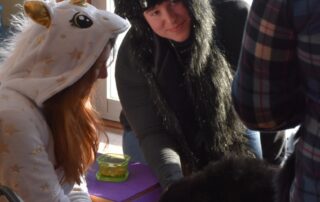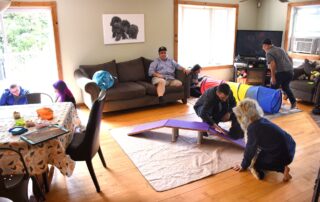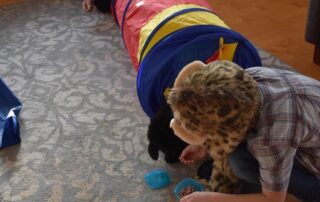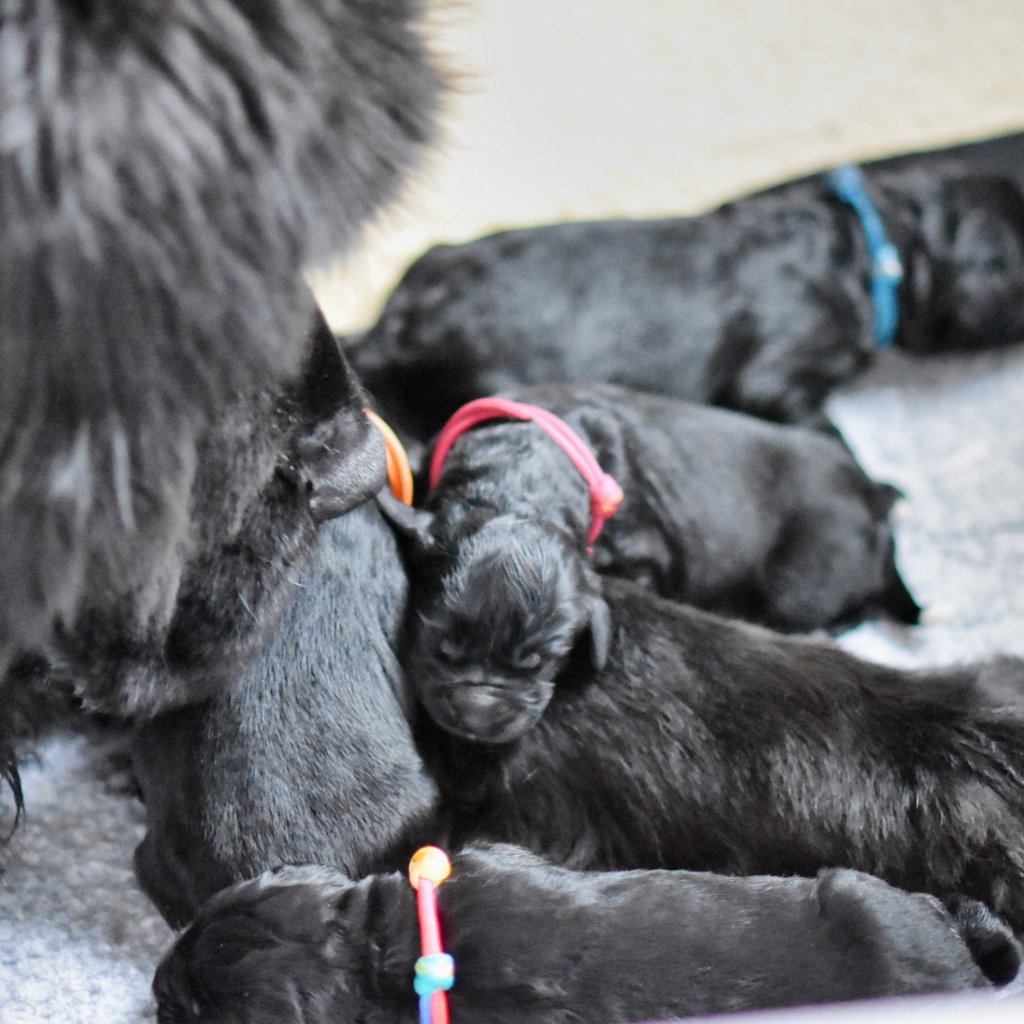
HOW WE RAISE OUR PUPPIES
0-3 WEEKS OLD
In these amazing weeks, we see the puppies transform from deaf, blind, helpless loaves of fur, to real little puppies who can hear, toddle, and play. You’ll get to take a peek at the funny and touching moments when they realize there’s a whole world outside of themselves. The puppies’ eyes and ears are sealed shut when they’re born. Their eyes open first (usually at around 12-15 days old ), and their ear canals usually open around 7 days later. That period, between the time that their eyes and their ears open, is known as the “transitional” period. This is because useful vision and hearing are thought to be necessary for the puppies to enter into the next developmental period, which will be the socialization period.
Critical Socialization Period: Week 4-12
Socializing puppies by exposing them to as many new experiences as possible while the puppy is young is only part of the process of Socialization. Our goal is to raise dogs that have the emotional intelligence to connect with you. Emotional intelligence can be taught to young puppies and is one of the goals of the Puppy Culture Program. There are 7 key things that will nurture the emotional intelligence of a puppy.
- Communication – giving a puppy his own voice i.e. Communication Trinity: power up clicker, box game, manding and attention/distraction protocols
- Emotional stability – the ability to recover easily from fear as well as stress i.e., startle recovery, barrier challenges etc
- Habituation – familiarity with the maximum number of things (Puppy Parties, sound protocols, household noises , meeting different people, dogs etc.)
- Enrichment – teach that novelty and challenges are opportunities for enrichment not things to be feared or avoided (Ongoing introduction of new novelty items, Activity Centre, car ride, outdoors, etc.)
- Health – physical wellness and motor skills that will allow the puppy to develop in a neurologically and physically sound way (daily weight checks, grooming, proper nutrition, fecal checks, and deworming, if necessary, vet health checks and vaccinations)
- Skills – learned behaviors which teach the puppy to function in human society i.e. recall, manding, simple commands, potty box training, crate introduction, resource guarding, bite inhibition etc.
- Love – teach puppies to seek out the company of both dogs and humans as emotionally positive experiences: i.e., Daily cuddles with humans and puppy’s mom.
- Shaping emotional responses: happy and calm CER (Conditioned Emotional Responses)
Weeks 10-12: Puppies go home with their families.
